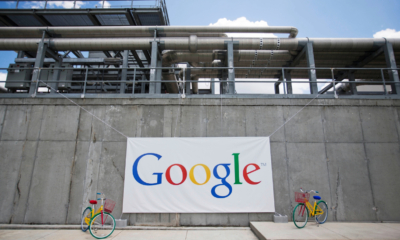SOCIAL
The Drum | Health Not Wealth: Consumers Are Prioritizing Wellness In 2023

The cost-of-living crisis has led to a decrease in new year’s resolutions and a focus on personal health and finances, writes Alexandra Sheppard of Roast.
Is the cost of living crisis highlighting what really matters to consumers? / Katerina May via Unsplash
Have you made a new year’s resolution this year? If you have, then you’re in the minority, with only 35% of us having made a resolution this year. It seems an increasing number of people are actively avoiding piling additional pressure on themselves when they already know it’s going to be a tough year.
Data from GWI shows that health and wellness resolutions such as ‘eat more healthy food’ are more popular than last year. We also saw fewer consumers aiming to ‘save more money’, perhaps conceding that this will be too difficult in the face of high inflation.
When we look at the reasons why consumers aren’t making resolutions, the fact that they are difficult to keep has become the top reason, reaffirming the view that there is a trend of consumers who want to be realistic.
The bar is low for 2023
To feel a sense of success and personal growth, 2023 looks to be the year of achievable goals. Resolutions such as ‘eat more healthy food’, ‘lose weight’, and ‘drink less alcohol’ have increased since 2022 as consumers want to focus on a healthy lifestyle, while doing so in an affordable way.
Surprisingly, fewer are planning on going vegan or eating more vegan food this year. In comparison to 2022, those planning on eating fewer animal products has dropped by 36%. In addition to this drop, just 19% are interested in challenging themselves and trying Veganuary, with gen Z and millennials making up most of those likely to try and go plant-based.
With consumers prioritizing their finances and protecting their disposable income more than ever, the perception of veganism as an expensive lifestyle change has come to the fore. Consumers are choosing to pursue seemingly more achievable goals to reach a healthy lifestyle.
This attitude is also reflected in intention towards social media usage. Even though skepticism toward social media is on the rise (just 20% of the UK population believes that social media is good for society), the resolution to spend less time on social media has declined from 8% to 5% of UK consumers. People are realistic about the likelihood of spending less time online.
What does this all mean for marketers?
As we have entered the new year, consumers are fragile, financially conscious and in need of reassurance and support. The prioritization of health and the protection of finances shows what consumers are caring about. Making your brand helpful –whether through advice, supportive messaging or deals and discounts – will not only be appreciated but also assuredly win consumer favor.
Consumers are keen to focus on self-care, health and wellness while protecting their finances. If brands can help with this for free, even better. Focusing on small and achievable activities such as sharing content on healthy recipes, the best reads, or even picturesque places to go for walks, can help consumers with the realistic goals and sense of achievement that they are looking for this year. The question now: how many of us will stick to it?


















You must be logged in to post a comment Login